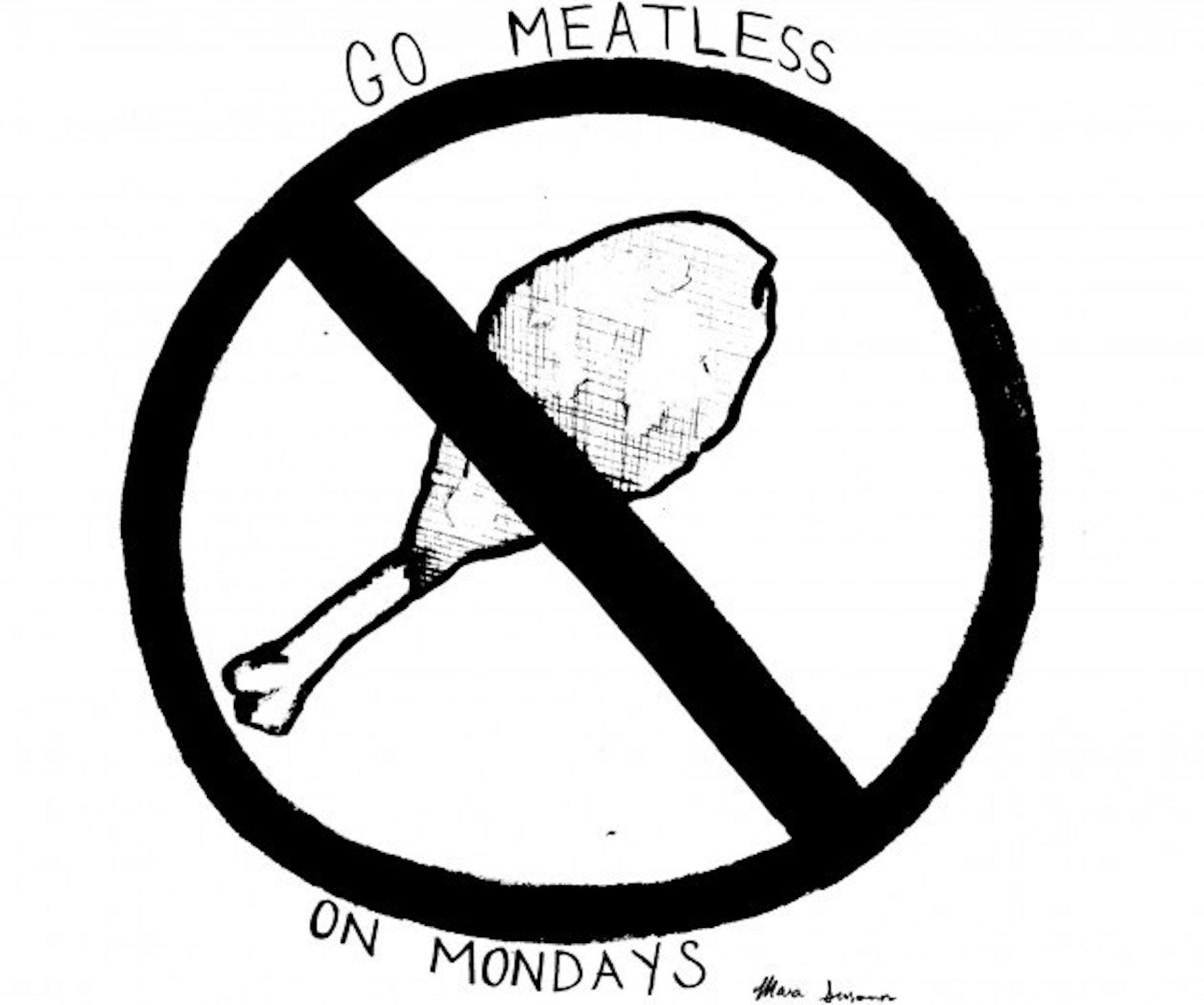Meatless diet is healthy for planet and self
It's easy to feel overwhelmed in a culture where it seems like problems grow daily and people spend more time talking about them than actually doing anything to solve them.
Luckily, there is an easy way that you can have an impact on some of the world's biggest problems. You can help the environment, improve your health and speak out against animal cruelty all by making the simple decision to reduce (or eliminate) the amount of meat and dairy in your diet.
How can this simple act make such a difference?
It takes more than 10 times as much fossil fuel to make one calorie of animal protein as it does to make one calorie of plant protein.
Worldwide, raising animals for food is responsible for 7.1 billion metric tons of carbon dioxide per year.
The Environmental Defense Fund put it simply: "If every American skipped one meal of chicken per week and substituted vegetables and grains ... the carbon dioxide savings would be the same as taking more than half a million cars off of U.S. roads."
Second, reducing or eliminating meat and dairy from your diet is good for your health. Numerous studies have shown links between consuming animal products and serious health issues such as cancer, heart disease and weight gain. A diet rich in vegetables, fruits, whole grains, legumes and nuts along with regular exercise is consistently linked to lower rates of obesity, along with lower blood cholesterol levels and blood pressure. Plus, serious athletes are seeing performance benefits from following a vegan diet.
The world's strongest man, Germany's Patrik Baboumian, is a vegan. And even ultimate fighters like Mac Danzig and Jake Shields are eliminating meat and dairy in an attempt to get an edge over their competition.
Last, but not least, is the issue of animal cruelty. Factory farms, where the vast majority of our meat, eggs and dairy come from, are the biggest animal welfare crises of the century.
Most of the 10 billion animals that are raised on factory farms and slaughtered for food in the United States every year are never able to breathe fresh air or even extend their limbs during their short, pain-filled lives.
Chickens raised for meat are often crammed together in buildings by the tens of thousands and are allotted floor space the size of a sheet of notebook paper, and egg-laying hens that are confined in battery cages live their whole lives in a bare wire cage the size of a filing cabinet with up to eight other birds. It is safe to say that no one wants to be a part of that kind of cruelty.
The good news is that you can let your voice be heard and make a real change in the world every time you sit down to a meal by reducing or eliminating meat, dairy and eggs. It's an easy way to do something that matters—for the planet, for animals and for your own health.
Meatless eating is rapidly gaining popularity, with more college students than ever now saying they're limiting their meat consumption. Brandeis is supporting this effort by participating in Meatless Mondays, an international initiative to improve student health, reduce the school's carbon footprint and improve animal welfare.
With Meatless Mondays, more meatless options are available than usual on Mondays so students can, as a group, take a break from meat that day—and take a stand for a better planet.
Editor's note: The writer is a member of the Brandeis Real Food Coalition and was part of last semester's effort to petition the University to serve only cage-free eggs.



Please note All comments are eligible for publication in The Justice.